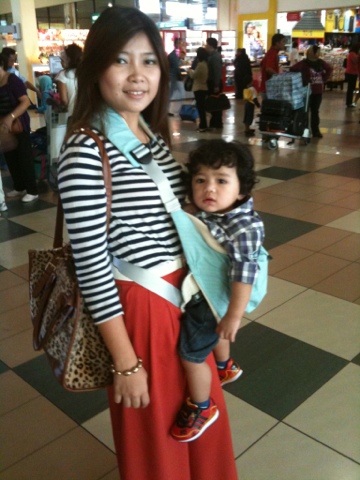Salam,
Will update the progression of tabita skincare later...
Check it out.!!!
Khamis, 24 November 2011
Rabu, 23 November 2011
LITTLE READER TOUCH!!!!
Little Reader Touch now available for the iPad, iPhone, and iPod Touch!
We at BrillKids are very excited to let you know that Little Reader Touch is finally here!
Visit the App Store today and download Little Reader Touch on your iPad, iPhone, or iPod Touch for FREE – don't forget to check out the in-app store for FREE DOWNLOADS and join our LUCKY DRAW for a chance to win a Little Reader Basic kit!
Download Little Reader Touch on your iPad, iPhone, or iPod Touch today, and become your child's first and best teacher!
This promotion applies only to orders made at the Little Reader Touch online store. No adjustments can be made on prior sales. BrillKids reserves the right to change this promotion at any time. Offer void where prohibited or restricted by law. This promotion is valid only until 07-December-2011.
We at BrillKids are very excited to let you know that Little Reader Touch is finally here!
Visit the App Store today and download Little Reader Touch on your iPad, iPhone, or iPod Touch for FREE – don't forget to check out the in-app store for FREE DOWNLOADS and join our LUCKY DRAW for a chance to win a Little Reader Basic kit!
Launch Promotion – Giveaway! From now until December 7, 2011: FREE DOWNLOADS All available downloads in the in-app store can be downloaded for FREE! LUCKY DRAW FREE Little Reader Basic kits (worth US$149) will be given away to 1 out of every 5 people who enter our draw! This special offer is valid only for two weeks (from now until December 7, 2011), so download Little Reader Touch now! Learn more |
Download Little Reader Touch on your iPad, iPhone, or iPod Touch today, and become your child's first and best teacher!
This promotion applies only to orders made at the Little Reader Touch online store. No adjustments can be made on prior sales. BrillKids reserves the right to change this promotion at any time. Offer void where prohibited or restricted by law. This promotion is valid only until 07-December-2011.
How does infant brain development occur?
Salam,
When your baby is born his brain weighs about 350 g (12 oz); by his first birthday it weighs 1 kg (2.2 lb).
At birth, the brain already has some 200 billion neurons (nerve cells) - about the same number as it will have in adulthood.
Each neuron responds to stimulation by growing a network of dendrites (branches) and synapses (connections) between itself and its neighbours.
Each neuron ends up with dendrites leading to an average of 15,000 synapses.
Dendrite formation becomes more complex over time, with third- and fourth-tier branches appearing by 6 months of age.
The more stimulation the brain receives, the more sophisticated its dendritic networks become.
The frontal lobe (the part of the brain that deals with emotions) becomes highly metabolically active from 6 months of age. By 18 months the neural foundations of your baby's emotional intelligence are laid.
Between 2 and 4 months old, the number of synapses in your baby's visual cortex increases tenfold to 20,000 per neuron.
By 12 months, neurons that distinguish native language have found their permanent position.
At 18 months the brain's language centre experiences a massive synaptic spurt, producing an explosion in grammar.
During the first eight years of life, and in particular the first three, there are a number of critical windows for acquiring specific types of intelligence. Once these windows have closed, learning is much more difficult, if not impossible. Babies are particularly open to learning during their first year, as outside of the brainstem (which controls critical life-sustaining processes), very few neural pathways have formed.
How your baby's brain develops
Salam,
Humans are the only animals whose brains triple in size during the first two years of life. If it were any larger at birth, a baby's head would not fit through its mother's pelvis. Any smaller, and the baby's survival would be in jeopardy. The brain grows to 75 percent of its adult size by age two, and 90 percent by age three.
Humans are the only animals whose brains triple in size during the first two years of life. If it were any larger at birth, a baby's head would not fit through its mother's pelvis. Any smaller, and the baby's survival would be in jeopardy. The brain grows to 75 percent of its adult size by age two, and 90 percent by age three.
The science of Early Learning
Salam,
Your baby is born with most of the brain cells she will ever have, but during her first 12 months in the world, her brain will become increasingly complex. By the time she reaches the age of two, her brain will already be 75 percent of its adult weight. By the age of three, it will have reached 90 percent of its adult weight.
Almost 50 percent of the brain cells your baby is born with will wither and die during the first few years of life. This process, known as neural pruning, organizes the brain and makes it more efficient.
The brain learns through experience. Events in your baby's life trigger electrical impulses to the brain, establishing neural pathways. The more a pathway is used, the more established it becomes, making it less susceptible to pruning.
Just like a muscle, the brain works on the principle of "use it or lose it."
Brillkids -Little Reader, Little Math & Little Chinese
Dear,
I found this great community for parents and educators who are interested in teaching young children!
The BrillKids community is a place to meet and greet parents, educators, and people who are interested in maximizing intelligence of their baby.
You can post topics and threads about early childhood education, and you can even talk to other members about your personal experience as a parent teaching your child.
You can also download free learning tools from the BrillKids File Downloads section, as well as create and upload your own to share with other people!
So sign up for an account with BrillKids - registration is fast, simple, and FREE!
http://www.brillkids.com/ra.php?77292
Hope to see you there!
I found this great community for parents and educators who are interested in teaching young children!
The BrillKids community is a place to meet and greet parents, educators, and people who are interested in maximizing intelligence of their baby.
You can post topics and threads about early childhood education, and you can even talk to other members about your personal experience as a parent teaching your child.
You can also download free learning tools from the BrillKids File Downloads section, as well as create and upload your own to share with other people!
So sign up for an account with BrillKids - registration is fast, simple, and FREE!
http://www.brillkids.com/ra.php?77292
Hope to see you there!
Rabu, 2 November 2011
5 days 4 nites
Salam,
i miss my blog,i cannot update my blog,my fb,my twitter coz my phone cant roaming...im away from malaysia...to over da sea.... huhu...cet macam jauh sngt jer...btw i went to singapore...Holidays!!! like that lol....
Act wanna share with u that my mum x jadi g mecca ...ada x baca paper singapura??? they said 652 peoples cant get visa due to king of mecca died... plus people doin the visa berhenti plak!!!! triple SAD:(...
my mum n my grandma lagi lah sad siap dah mimpi kaabah...conclusion let we pray there is a hikmah btw all these...amin...hope she can go by next year...tuhan tolong makbulkan doa anak yang mithali ni... insyaallah...
let see all pixs!!!
i miss my blog,i cannot update my blog,my fb,my twitter coz my phone cant roaming...im away from malaysia...to over da sea.... huhu...cet macam jauh sngt jer...btw i went to singapore...Holidays!!! like that lol....
Act wanna share with u that my mum x jadi g mecca ...ada x baca paper singapura??? they said 652 peoples cant get visa due to king of mecca died... plus people doin the visa berhenti plak!!!! triple SAD:(...
my mum n my grandma lagi lah sad siap dah mimpi kaabah...conclusion let we pray there is a hikmah btw all these...amin...hope she can go by next year...tuhan tolong makbulkan doa anak yang mithali ni... insyaallah...
let see all pixs!!!
Langgan:
Catatan (Atom)






















